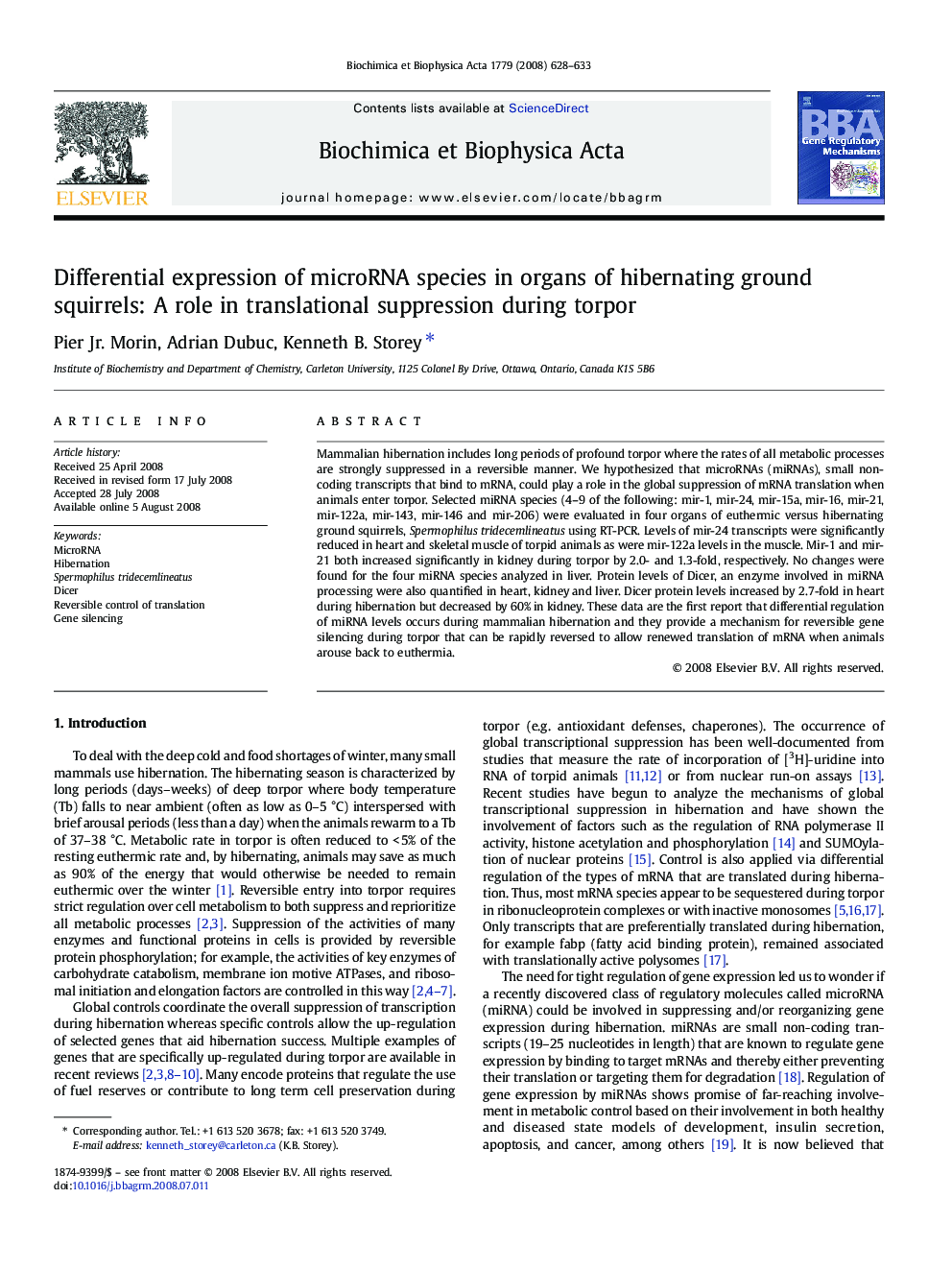| Article ID | Journal | Published Year | Pages | File Type |
|---|---|---|---|---|
| 1947031 | Biochimica et Biophysica Acta (BBA) - Gene Regulatory Mechanisms | 2008 | 6 Pages |
Mammalian hibernation includes long periods of profound torpor where the rates of all metabolic processes are strongly suppressed in a reversible manner. We hypothesized that microRNAs (miRNAs), small non-coding transcripts that bind to mRNA, could play a role in the global suppression of mRNA translation when animals enter torpor. Selected miRNA species (4–9 of the following: mir-1, mir-24, mir-15a, mir-16, mir-21, mir-122a, mir-143, mir-146 and mir-206) were evaluated in four organs of euthermic versus hibernating ground squirrels, Spermophilus tridecemlineatus using RT-PCR. Levels of mir-24 transcripts were significantly reduced in heart and skeletal muscle of torpid animals as were mir-122a levels in the muscle. Mir-1 and mir-21 both increased significantly in kidney during torpor by 2.0- and 1.3-fold, respectively. No changes were found for the four miRNA species analyzed in liver. Protein levels of Dicer, an enzyme involved in miRNA processing were also quantified in heart, kidney and liver. Dicer protein levels increased by 2.7-fold in heart during hibernation but decreased by 60% in kidney. These data are the first report that differential regulation of miRNA levels occurs during mammalian hibernation and they provide a mechanism for reversible gene silencing during torpor that can be rapidly reversed to allow renewed translation of mRNA when animals arouse back to euthermia.
